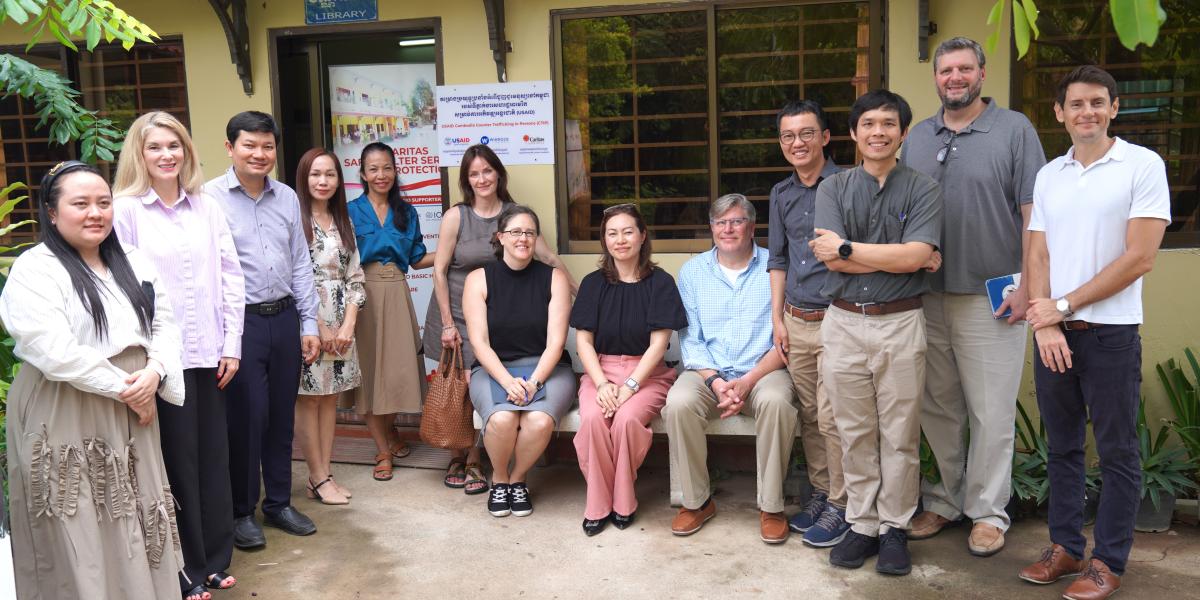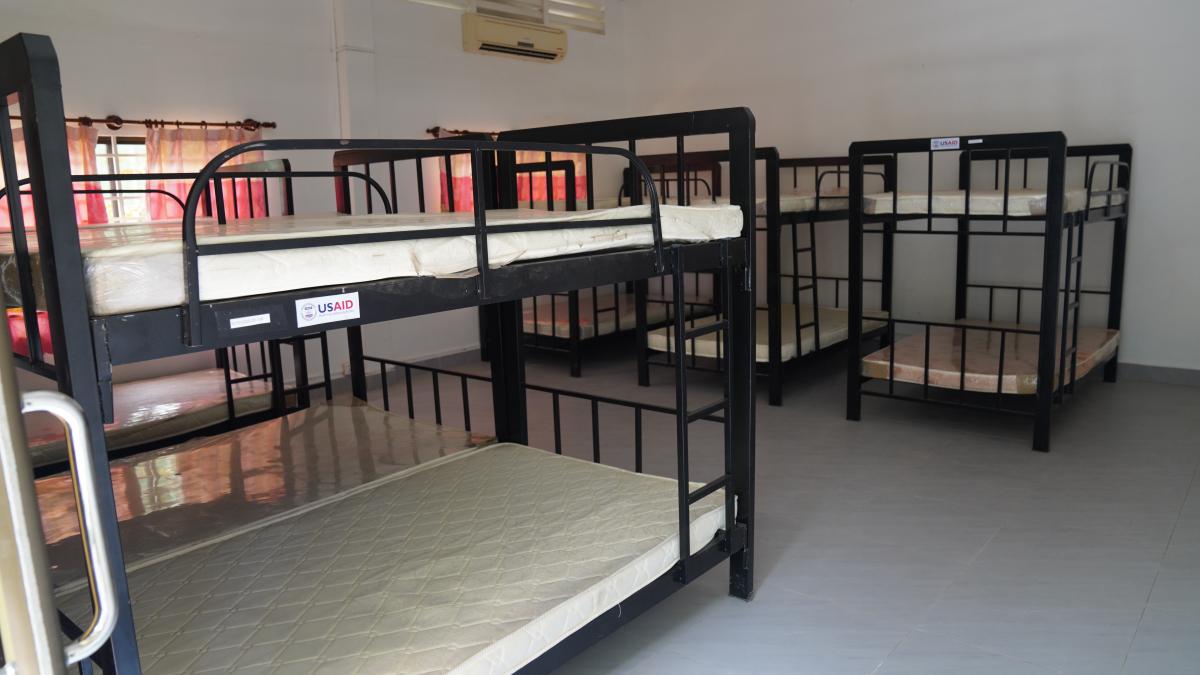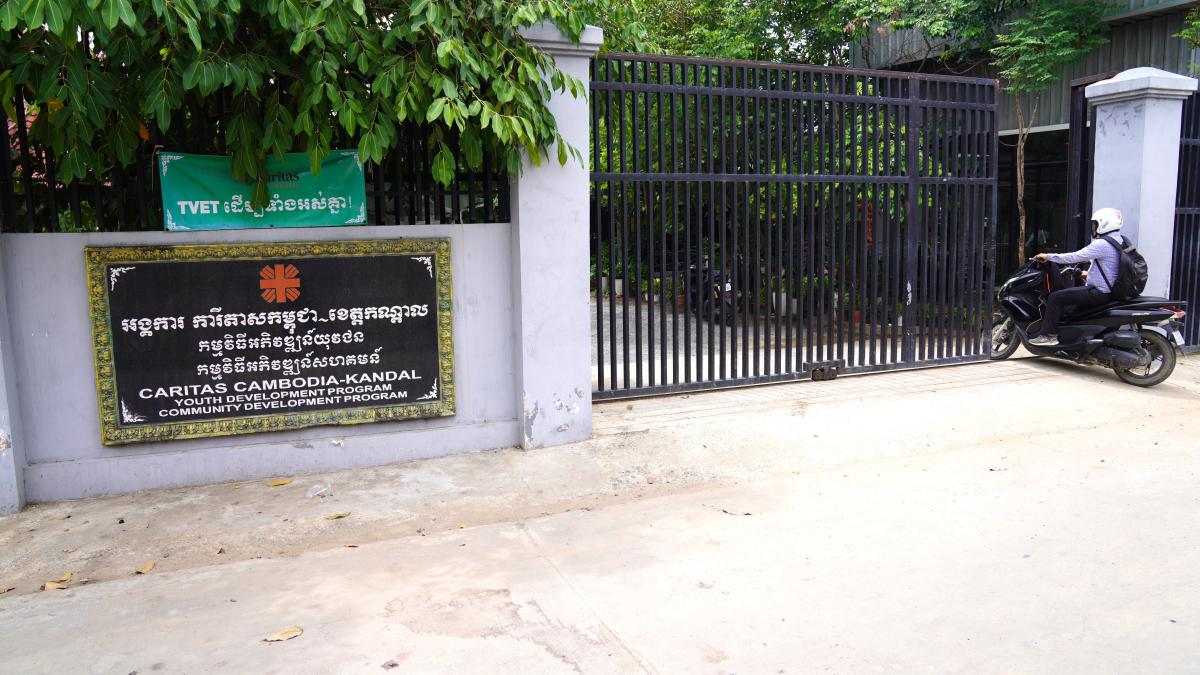
USAID counter-trafficking study tour visits Cambodia to seek regional solutions to the growing threat of scamming operations
Kandal Province – The advertisement for a high-tech, high-paying job in far-away Cambodia seemed almost too good to be true. For Johan* and his wife, a Malaysian-Filipino couple down on their luck with a baby on the way, the prospect was an answer to their prayers.
But weeks after they arrived, the couple found themselves living a nightmare they hadn’t anticipated: Kidnapped and held captive by armed guards in a prison-like compound in Bavet, they were forced to work long days with thousands of other trafficked men and women to carry out online scams.
“My wife had a miscarriage. When I tried to see her, I was beaten and locked away in a room,” said Johan, who recently recounted his story to a group of USAID counter trafficking experts visiting Cambodia to learn more about the growing epidemic of online scamming operations.
Lured by the promise of high-tech jobs and a better life, hundreds of thousands of people like Johan and his wife are trafficked each year, bought and sold as slaves by criminal networks spread across Southeast Asia.
Cambodia, Laos and Myanmar are at the epicenter of the global industry, according to a May 2024 report from the U.S. Institute of Peace, which stated that Cambodia’s online scamming industry earns at least $12.5 billion per year – an amount equivalent to more than 40 percent of Cambodia’s GDP.

Caritas facilitated their safe repatriation with the assistance of the Cambodia Ministry of Social Affairs, Veterans, and Youth Rehabilitation. Photo Credit: Caritas Shelter.
‘Eye-Opening’ Study Tour to Cambodia
The Counter Trafficking in Persons (CTIP) study tour, hosted by USAID/Cambodia from May 20 to 24, brought together experts from bilateral USAID missions in Vietnam, Laos, and Thailand to share experiences on the regional crisis.
“The study tour was an eye-opening experience and was a critical vehicle by which to groundtruth reports that regional USAID Mission teams had only heard second-hand,” said James Gilman, CTIP Coordinator at USAID/Vietnam.
When scamming survivors escape or are rescued by police, they are faced with a whole new set of challenges, from language barriers to psycho-social and safety issues. Findings from the study tour revealed gaps in the regional CTIP response, including with victim rescue, identification, and referral.
But there is help. The USAID-supported Caritas Shelter, located in Kandal province just south of Phnom Penh, provides safe housing, food, health care, and counseling to the trafficked survivors, as well as legal help with repatriation.
Johan and his wife were sent to Caritas after being rescued by local authorities, and before being repatriated to Malaysia. “We now have new hope,” said Johan.
Sopheak Tek, a program director at Caritas, said the shelter had hosted as many as 92 trafficked survivors in previous months from countries such as Bangladesh, Philippines, China, Vietnam, Thailand, and Indonesia. Most reported that they had been falsely recruited or duped by online job advertisements and recruitment companies.

Bars Running from Floor to Ceiling
Nicole Goodrich, a senior technical advisor from Winrock International, the USAID implementing partner that manages Caritas, said the biggest takeaway from the study tour was witnessing the “sheer magnitude” of what forced criminality and online scamming operations look like in Cambodia.
“It is one thing to read a report, listen to a presentation, hear statistics about the number of people trafficked into the scamming compounds. But, until you see the compounds – really prisons – with your own eyes, you see their size, the bars running floor to ceiling and the cemented-over exits, you see the guard towers and razor wire … you cannot fully grasp the true severity of this specific type of trafficking in persons,” she said.

Continued regional networking, data sharing and collaboration in the CTIP space among governments, donors, and non-government organizations will be key to ending human trafficking and online scamming operations.
“Increased knowledge, strategy, funding and attention on this global problem is going to be important for moving the needle as we tackle this problem,” said Julie Browning, a senior advisor from USAID’s Democracy, Governance, Peace and Security office in the Asia Bureau
*Not his real name.
About the CTIP Activity
USAID/Cambodia’s Countering Trafficking in Persons activity (March 2021 to March 2026), managed by Winrock International, addresses the root causes of trafficking, advocates and protects vulnerable populations from trafficking and abuse, prevents at-risk populations from risky migration, supports victims of human trafficking, and improves Cambodia’s countering trafficking in persons efforts.
About the Author
Doug Johnson is the Development Outreach and Communications Advisor at USAID’s mission in Cambodia.
